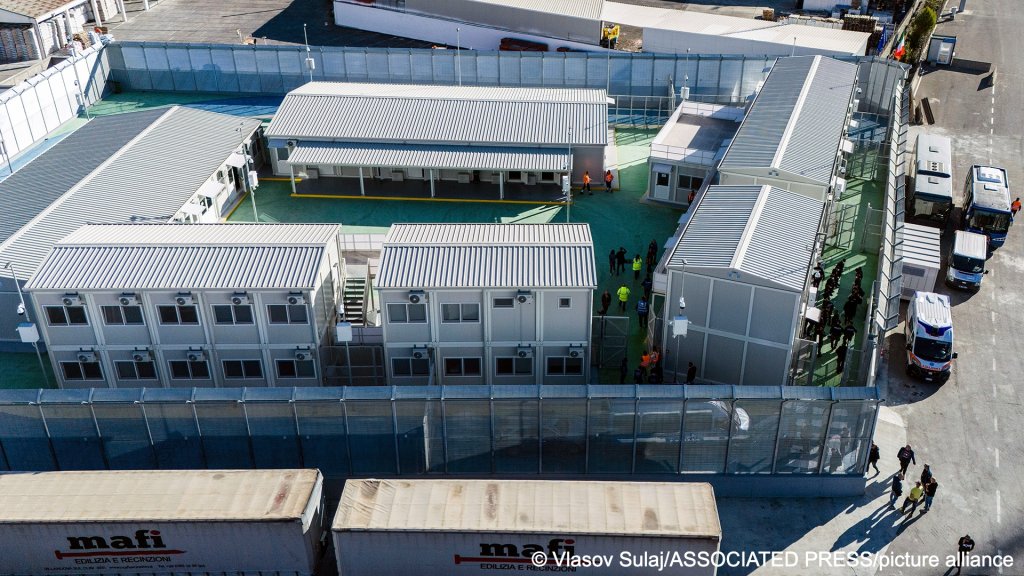Under the 2023 deal between Italy and Albania, adult males rescued in the Mediterranean Sea would be sent to Italian-run detention centers in Albania to have their asylum claims processed. Pregnant women and children, however, are exempted.
An Italian navy ship with 49 people rescued in international waters docked in Albania on Tuesday (January 28) for the processing of their asylum applications, the Associated Press (AP) reported. Five of the passengers, however, were said to have been returned to Italy.
Citing local media reports, AP said two Bangladeshis, two Gambians, and one Ivorian were sent back to Italy, four because they were minors. A fifth was reported to have been deemed a "vulnerable" person.
The other 44 passengers who were reported to be mostly from Bangladesh, Egypt, Ivory Coast, and Gambia are being held at Albania’s Gjader facility, a former military airport, where their asylum applications will be processed.
In line with the Italian - Albania deal ratified in 2024, only adult males rescued in the Mediterranean Sea could be sent to the Italian-run detention centers in Albania. People who are deemed "vulnerable" such as children, elderly, and the sick are exempted.
'Impossible to identify the vulnerable at sea'
The Italian Juridical Association for Immigration Studies (ASGI), a group of independent lawyers and scholars focused on migrant rights, published a report last June raising concerns about the proposed procedure of assessing the needs of those rescued while at sea to determine their immediate transfer to Albania.
"it is practically impossible to carry out a screening with respect to the identification of all vulnerabilities at the same time as rescue at sea ... Despite knowing that asylum seekers with special needs should be brought to Italy, it is already assumed that it will be impossible to identify them before disembarking in Shengjin," ASGI wrote in the report.

Euro-Med Human Rights Monitor, a youth-led human rights organization, outlined three contact points where rescued individuals are assessed for their vulnerability: one on the Italian Coast Guard vessel; one on the naval shop carrying people to Albania; and the last in the port of Schengjin.
According to Euro-Med Human Rights Monitor, only those who visibly and undoubtedly fit the description of "vulnerable" such as women, children, elderly, and disabled persons would be exempted from being sent to Albania. People with hidden vulnerabilities such as mental disorders, and experience of torture of sexual violence would risk being subjected to border control procedures in prison-like centers.
A third try
The arrival of the Italian vessel marks the third attempt by Italy to implement its controversial 670 million euro ($730 million) deal with Albania to host migrant detention and processing centers.
Last October and November, Italian judges refused to approve the detention of two groups of mostly Bangladesh and Egyptian men at the Albanian centers. In their ruling, the Court cited the European Court of Justice (ECJ) decisions on migrant safety to justify that the migrants' countries of origin were not safe enough to return to should their asylum applications be rejected, because not all areas of the country could be considered safe.
The ECJ is expected to assess whether Italy’s outsourcing of its migration and asylum policies to Albania aligns with EU laws in the coming weeks.
Even before these legal tensions were brewing, two Italian prison officers' unions--the Italian Autonomous Confederation of Penitentiary Police and the Officers' Union Coordination--protested about the deployment of 50 correctional officers to Albania, saying the migrant centers were "like prison camps".
